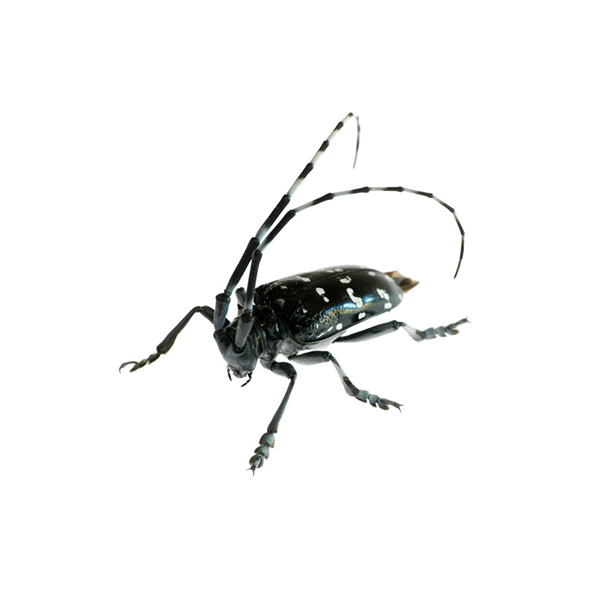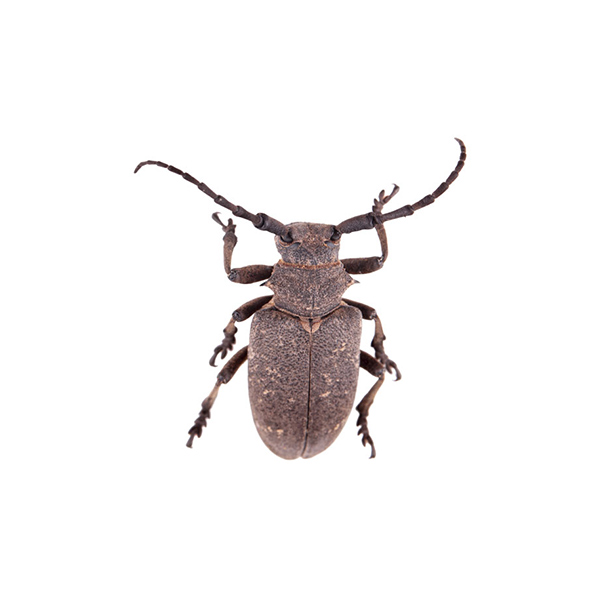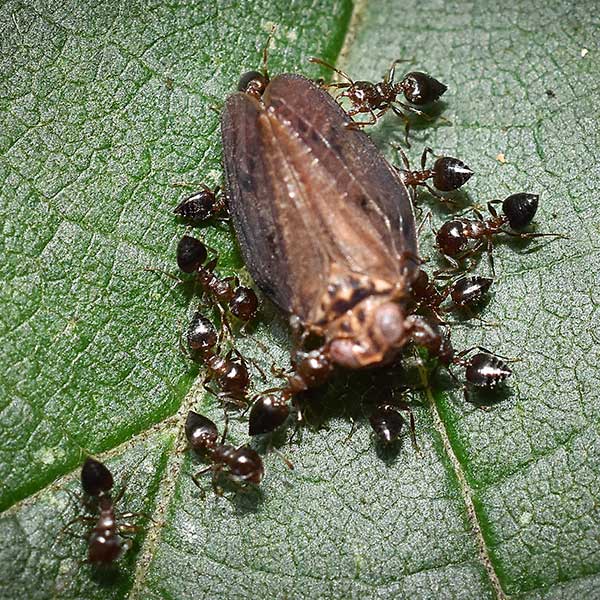Citrus Long-Horned Beetles in Santa Fe and Albuquerque NM
Citrus long-horned beetles are native to China, Japan, and Korea, and were first introduced in the United States when they hitched a ride on bonsai plants imported from Asia. Close relatives of the Asian long-horned beetle, these beetles are best known for having a shiny black exterior covered in white spots. They also possess four wings as most beetles do: two hindwings that are membranous and covered by the forewings (elytra) when at rest.
Male and female citrus long-horned beetles have several characteristic differences. In females, the elytra do not cover the entire abdomen and are rounded at the tips; in males, they do cover the abdomen and taper toward the tips. While both sexes have 11 segments in their antennae, the look of their antennae differs. Females possess antennae that are approximately 1.2 times the length of the body. The antennae on males are much longer and have alternating white and black bands.
Citrus Long-Horned Beetle Habitat
Citrus long-horned beetles are known to attack healthy hardwood trees, including pecan, apple, pine, oak, and willow, making them a bigger threat than other beetles that primarily attack dead trees. Adult beetles feed on leaves and twigs, which can cause significant damage.
Citrus Long-Horned Beetle Behaviors, Threats, or Dangers
Citrus long-horned beetles are considered to be very destructive and a grave threat to their hosts. However, the real danger is during the larval stage when they tunnel into or deposit eggs within larger roots, branches, and the bark of the trunk. A female citrus long-horned beetle will lay typically 200 eggs after mating in the base of the tree. When this species burrows deep into the wood, they create irregular tunnels that interfere with water and nutrient transportation, leading to rapid tree decline.
Say Goodbye To Citrus Long-Horned Beetles. Get Started Today!





